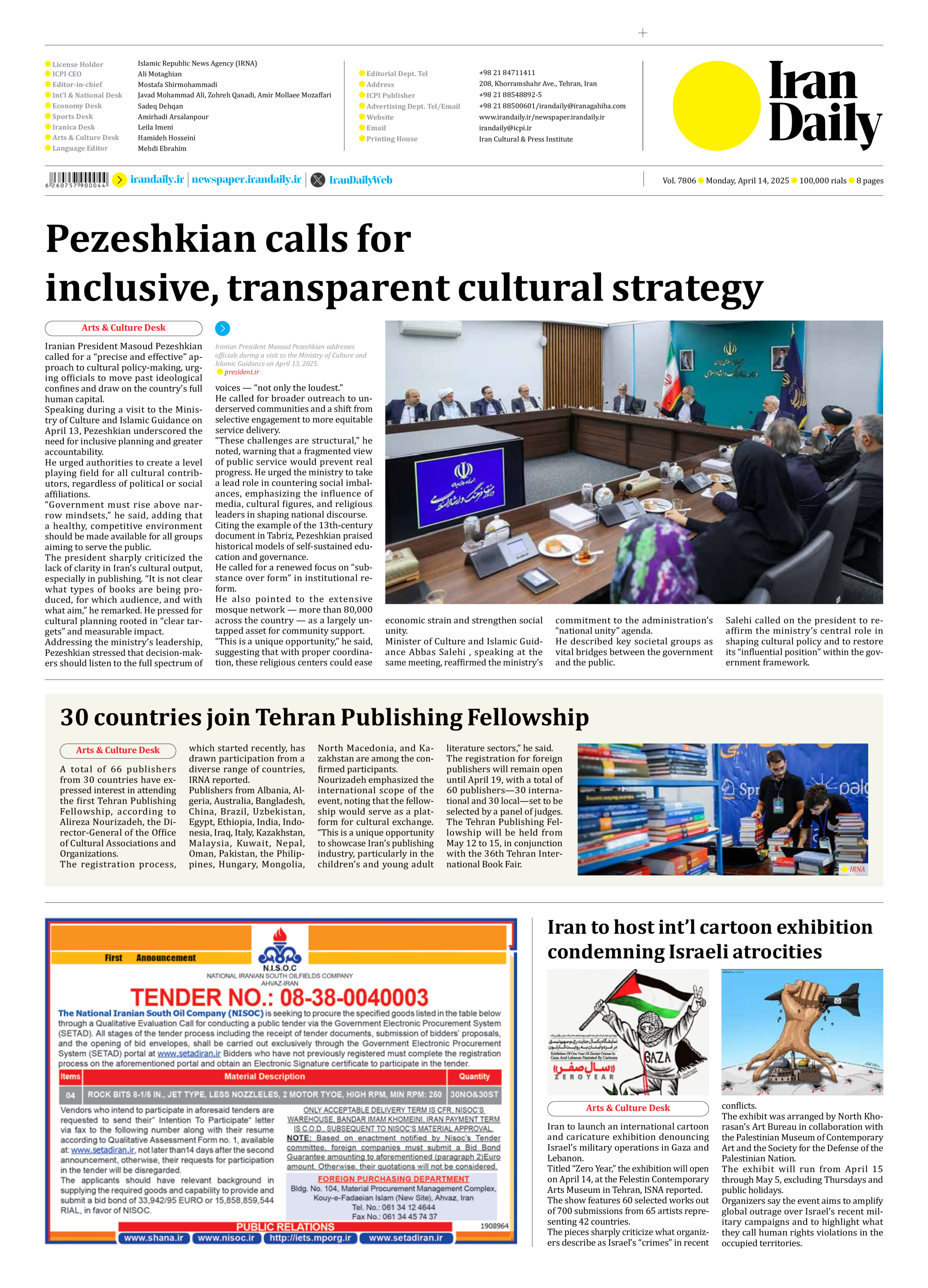
Pezeshkian calls for inclusive, transparent cultural strategy
Iranian President Masoud Pezeshkian called for a “precise and effective” approach to cultural policy-making, urging officials to move past ideological confines and draw on the country’s full human capital.
Speaking during a visit to the Ministry of Culture and Islamic Guidance on April 13, Pezeshkian underscored the need for inclusive planning and greater accountability.
He urged authorities to create a level playing field for all cultural contributors, regardless of political or social affiliations.
“Government must rise above narrow mindsets,” he said, adding that a healthy, competitive environment should be made available for all groups aiming to serve the public.
The president sharply criticized the lack of clarity in Iran’s cultural output, especially in publishing. “It is not clear what types of books are being produced, for which audience, and with what aim,” he remarked. He pressed for cultural planning rooted in “clear targets” and measurable impact.
Addressing the ministry’s leadership, Pezeshkian stressed that decision-makers should listen to the full spectrum of voices — “not only the loudest.”
He called for broader outreach to underserved communities and a shift from selective engagement to more equitable service delivery.
“These challenges are structural,” he noted, warning that a fragmented view of public service would prevent real progress. He urged the ministry to take a lead role in countering social imbalances, emphasizing the influence of media, cultural figures, and religious leaders in shaping national discourse.
Citing the example of the 13th-century document in Tabriz, Pezeshkian praised historical models of self-sustained education and governance.
He called for a renewed focus on “substance over form” in institutional reform.
He also pointed to the extensive mosque network — more than 80,000 across the country — as a largely untapped asset for community support.
“This is a unique opportunity,” he said, suggesting that with proper coordination, these religious centers could ease economic strain and strengthen social unity.
Minister of Culture and Islamic Guidance Abbas Salehi , speaking at the same meeting, reaffirmed the ministry’s commitment to the administration’s “national unity” agenda.
He described key societal groups as vital bridges between the government and the public.
Salehi called on the president to reaffirm the ministry’s central role in shaping cultural policy and to restore its “influential position” within the government framework.







